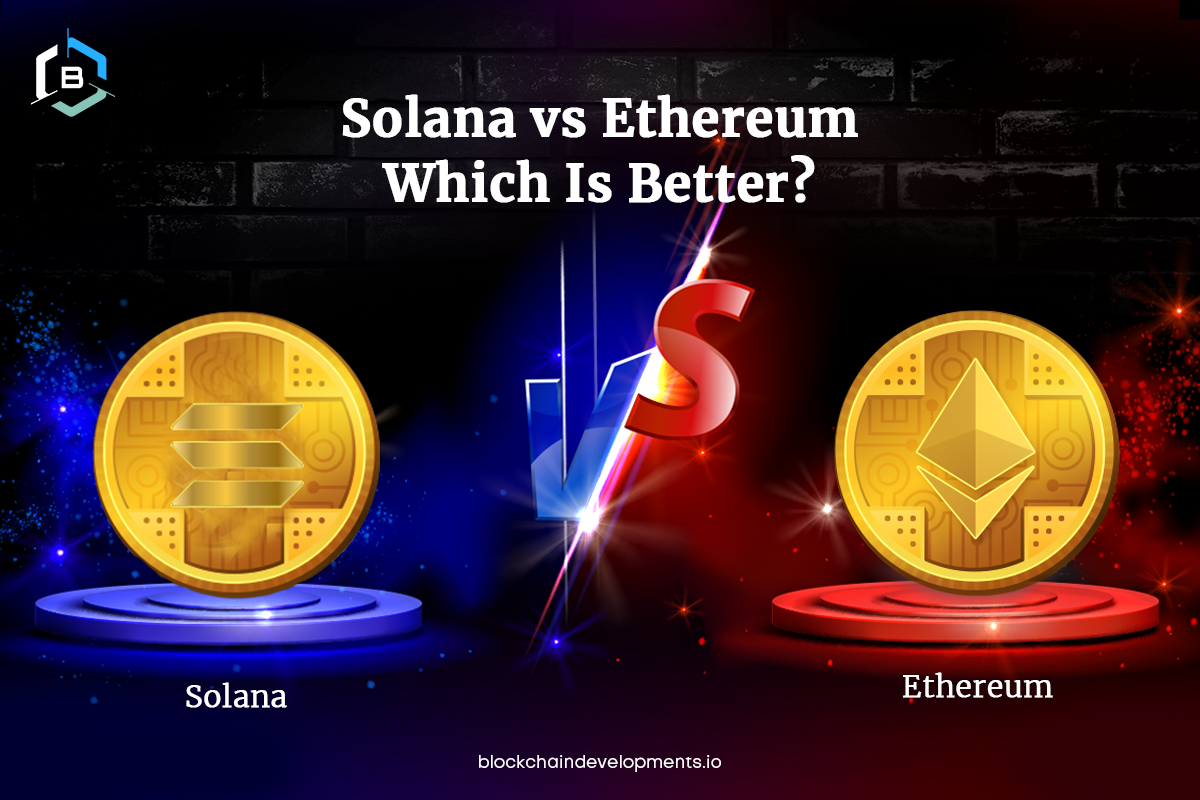Two of the most well-known blockchain, Solana and Ethereum, are frequently compared. The consensus process used by Solana and Ethereum is different from one another. Ethereum uses Proof of Work (PoW), which results in a network that is more decentralized but less scalable. Solana uses Proof of History (PoH) which is less secure but more effective, resulting in high-speed and low-cost transactions. This content will give you a detailed comparison between them based on the factors that should be kept in mind when deciding which to invest in.
What is Solana?
Solana is an open-source project that develops a new, fast, layer-1 blockchain without authorization. The native cryptocurrency of Solana is called SOL, and it is applied for staking and transaction fees. Theoretically, the Solana network can handle over 65,000 transactions per second (TPS) without the requirement for scalability solutions. Solana uses a blockchain-based ledger and runs on a decentralized computer network. Solana application development is perfect for the newest DApps and decentralized markets because of its total decentralization, security, and great scalability. This blockchain database effectively keeps track of all currency transactions throughout time while managing and monitoring the currency.
What is Ethereum?
Ethereum is a digital currency that’s home to digital money, global payments, and applications. The native cryptocurrency of Ethereum is called ETH. The community has created a thriving online economy, innovative new ways for creators to make money online, and much more. Anyone can access it from anywhere in the world with an internet connection. Ethereum is scalable, programmable, secure, and decentralized. It is the blockchain of choice for organizations and developers who are building technology to transform several industries and how we live our daily lives. Ethereum application development is great because it has a stateful architecture.
Here is a comparison between Solana and Ethereum:
1. Speed:
Solana is profiting from the slower network of Ethereum. Solana uses a centralized network to achieve such quick transaction rates. All cryptocurrency investors are aware of Solana’s fast delivery to its investors. Solana can process over 65,000 transactions per second, compared to Ethereum’s 30 transactions per second maximum. Ethereum’s block time is 15 seconds, but Solana’s is only one second.
2. Transaction Costs:
The majority of us hate paying transaction fees. Solana is renowned for its reasonable transaction fees. When compared to Solana, Ethereum has far higher transaction fees.
3. Transparency:
Solana fails to maintain appropriate transparency regarding its developers, even though Ethereum has a large developer community. Because Ethereum has been around since 2014 and Solana only entered the market in 2020. Ethereum values preserving greater transparency than Solana.
4. Network Size:
The most extensive smart contract network is found in Ethereum. Solana currently lacks the resources to compete due to its limited network. In this situation, Ethereum benefits from being the first to market whereas Solana lacks support from institutions and crypto experts.
5. Market value:
Among all cryptocurrencies, Ethereum is known to have the second-largest market valuation. In this case, Solana is much behind Ethereum. This is reasonable given that they are new to the market and may need some time to catch up to Ethereum in terms of market value.
Conclusion:
We have assisted you by providing a detailed comparison of the two most well-known Blockchain. Now it is up to you to decide which one would be the greatest investment for you. You might carefully consider whether you wish to ignore the drawbacks because each of these two has advantages and disadvantages of its own.
If you intend to add cryptocurrencies to your portfolio, consider the aforementioned factors, pick one of the two, and make a wise choice.





